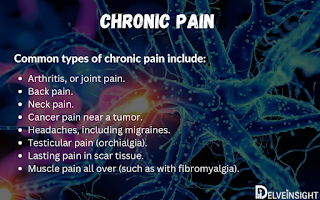Comprehensive Guide to Managing Amyotrophic Lateral Sclerosis (ALS): Challenges and Innovations
Amyotrophic Lateral Sclerosis (ALS), also known as Lou Gehrig's disease, remains a formidable challenge in neurodegenerative disorders, affecting motor neurons and gradually leading to muscle weakness and paralysis. Despite the complexity of ALS, recent years have witnessed significant advancements in treatment strategies and therapeutic innovations aimed at improving patient outcomes and quality of life.
RADICAVA: Evolving Sales Trends and the Rise of RADICAVA ORS in ALS Treatment
RADICAVA (edaravone) has emerged as a cornerstone in ALS therapy, demonstrating its efficacy in slowing disease progression. Approved by the FDA in 2017, RADICAVA has shown promise in clinical trials by reducing the decline in physical function associated with ALS. Its adoption has been notable, with increasing utilization and the introduction of RADICAVA Oral Suspension (ORS), providing a convenient alternative for patients.
RELYVRIO: A Rollercoaster Journey of Approval, Acceptance, and Withdrawal
RELYVRIO (eflornithine) marked a turbulent journey in ALS treatment. Initially approved with hopes of addressing ALS symptoms, its journey was marred by challenges, leading to its eventual withdrawal from the market. Despite setbacks, the experience underscores the complexities and rigorous standards required for ALS therapeutics.
ALS Treatment Landscape: Setbacks and New Hope on the Horizon
The ALS treatment landscape has witnessed setbacks alongside promising developments. RILUZOLE, the first FDA-approved drug for ALS, remains a mainstay in managing symptoms. Newer entrants like EXSERVAN (riluzole oral film) and TIGLUTIK (riluzole oral suspension) offer enhanced formulations for better efficacy and patient compliance.
Emerging drugs such as QALSODY are currently in clinical trials, aiming to address unmet needs in ALS treatment by targeting disease mechanisms more effectively. These developments reflect a dynamic pipeline and growing interest in advancing ALS therapeutics.
Conclusion:
The field of ALS treatment continues to evolve with a mix of challenges and opportunities. While RADICAVA has reshaped treatment paradigms with its efficacy and novel formulations, setbacks like the RELYVRIO experience highlight the stringent regulatory landscape and the need for robust clinical validation. Looking ahead, ongoing clinical trials and emerging drugs hold promise for expanding therapeutic options and improving outcomes for ALS patients.
As research progresses and therapeutic innovations emerge, the ALS community remains hopeful for breakthroughs that will transform the management and prognosis of this devastating disease.
For more insights into the ALS treatment landscape and emerging therapies, explore the latest developments in ALS therapeutics and clinical trials.
Latest Reports Offered By DelveInsight:
Nasopharyngeal Carcinoma Market | Pelvic Inflammatory Disease Market | Us Healthcare Outlook Report | Alpha Antitrypsin Deficiency Market | Autism Spectrum Disorder Market | Bacterial Vaginosis Market | Balloon Valvuloplasty Device Market | Carcinoid Tumor Syndrome Market | Choroideremia Market | Galactosemia Market | Graft Versus Host Disease Market | Hypoactive Sexual Desire Disorder Hsdd Market | Patent Foramen Ovale Closure Devices Market | Renal Insufficiency Market | Vagus Nerve Stimulator Market | Venous Stenosis Medical Devices Market | Wide Neck Bifurcation Intracranial Aneurysms Market

.png)


Comments
Post a Comment